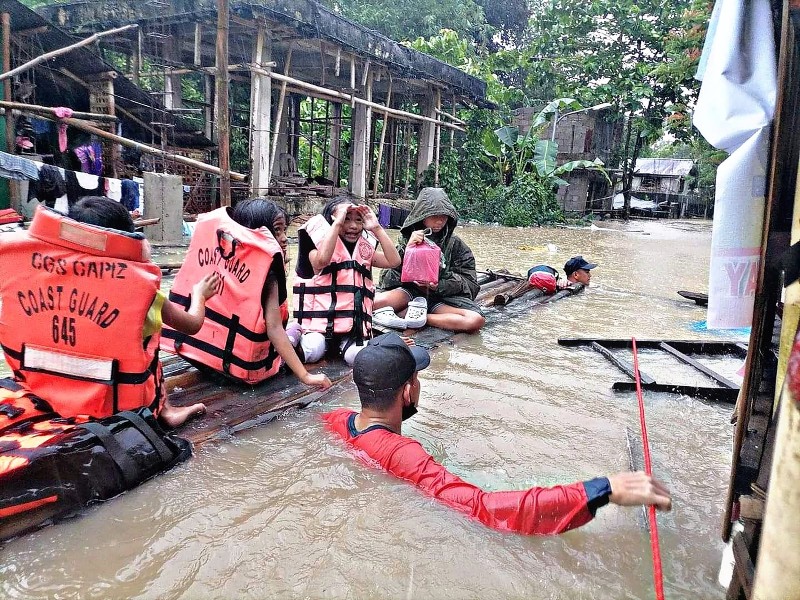
Tropical storm Megi claims 58 in Philippines amid landslides, floods
Most of the deaths from tropical storm Megi — the strongest to hit the disaster-prone archipelago this year — were in the central province of Leyte, where a series of landslides devastated communities
 A coast guard personnel evacuating local residents from their flooded homes on a makeshift raft in the town of Panitan, Capiz province as heavy rains brought on by Tropical Storm Megi inundated the area. (Credit: AFP)
A coast guard personnel evacuating local residents from their flooded homes on a makeshift raft in the town of Panitan, Capiz province as heavy rains brought on by Tropical Storm Megi inundated the area. (Credit: AFP)
Baybay, Philippines: The death toll from landslides and floods in the Philippines rose to 58 on Wednesday, official tallies showed, as rescuers dug up more bodies with their bare hands in villages crushed by rain-induced avalanches.
Most of the deaths from tropical storm Megi — the strongest to hit the disaster-prone archipelago this year — were in the central province of Leyte, where a series of landslides devastated communities.
At least 47 people died and 27 were missing after waves of sodden soil smashed into farming settlements around Baybay City over the weekend, local authorities said. More than 100 people were injured, they added.
Aerial photos showed a wide stretch of mud that had swept down a hill of coconut trees and engulfed Bunga village, where only a few rooftops poked through the now-transformed landscape.







